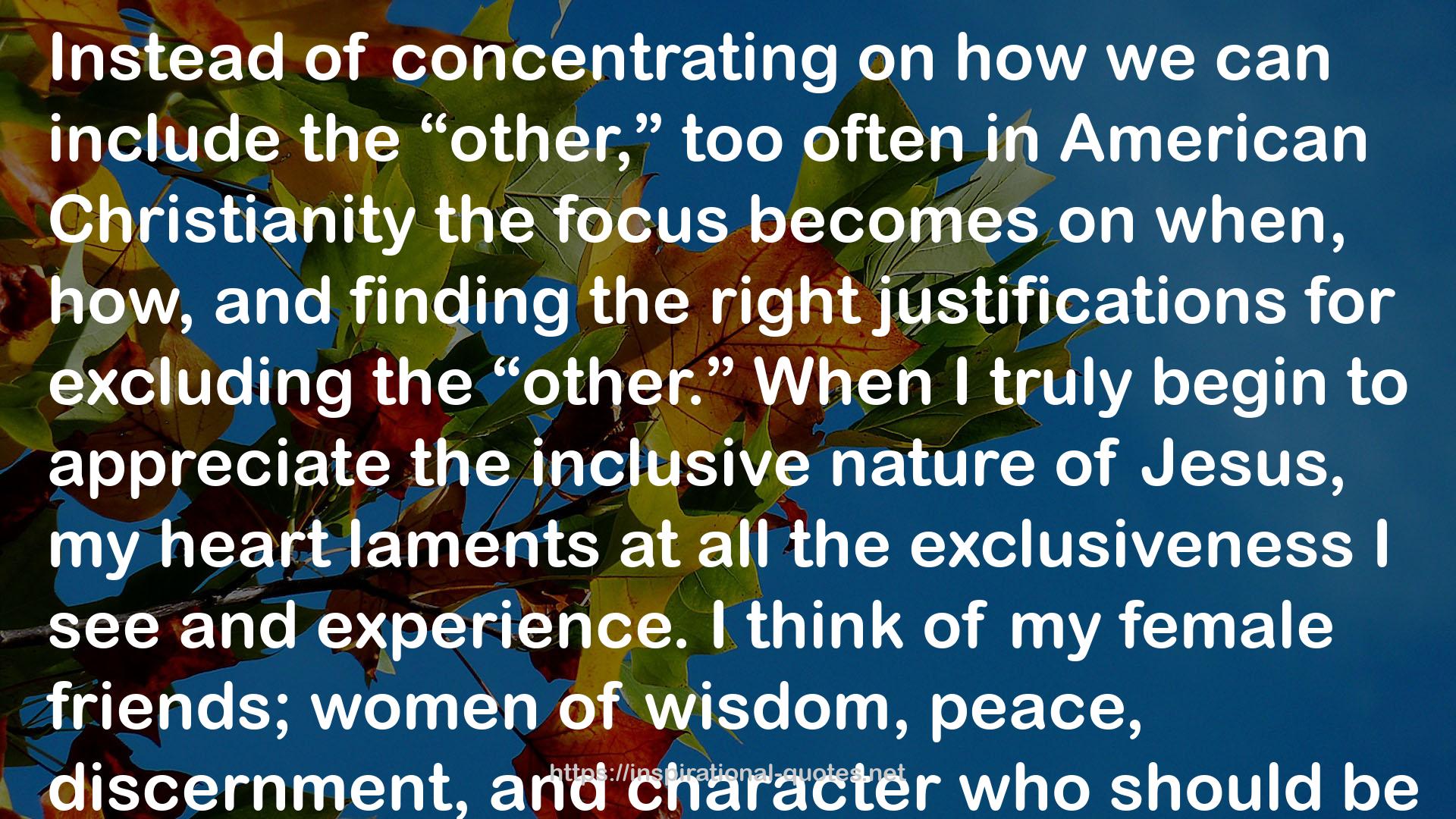" Instead of concentrating on how we can include the “other,” too often in American Christianity the focus becomes on when, how, and finding the right justifications for excluding the “other.” When I truly begin to appreciate the inclusive nature of Jesus, my heart laments at all the exclusiveness I see and experience. I think of my female friends; women of wisdom, peace, discernment, and character who should be emulated by the rest of us. When I listen and learn from these women, I realize what an amazing leaders they would be in church—but many never will be leaders in that way because they are lacking one thing: male genitals. Wise and godly women have been excluded, not because of a lack of gifting, education, or ability, but because they were born with the wrong private parts. I also think of a man who attended my former church who has an intellectual disability. He was friendly, faithful, and could always be counted on for a good laugh because he had absolutely no filter— yelling out at least six times during each sermon. One time in church my daughter quietly leaned over to tell me she had to go to the bathroom—and, in true form so that everyone heard, he shouted out, “Hey! Pipe it down back there!” It was hilarious. However, our friend has been asked to leave several churches because of his “disruptiveness.” Instead of being loved and embraced for who he is, he has been repeatedly excluded from the people of God because of a disability. We find plenty of other reasons to exclude people. We exclude because people have been divorced, exclude them for not signing on to our 18-page statements of faith, exclude them because of their mode of baptism, exclude them because of their sexual orientation, exclude them for rejecting predestination…we have become a religious culture focused on exclusion of the “other,” instead of following the example of Jesus that focuses on finding ways for the radical inclusion of the “other.” Every day I drive by churches that proudly have “All Are Welcome” plastered across their signs; however, I rarely believe it—and I don’t think others believe it either. Far too often, instead of church being something that exists for the “other,” church becomes something that exists for the “like us” and the “willing to become like us.” And so, Christianity in America is dying. "
― Benjamin L. Corey , Undiluted: Rediscovering the Radical Message of Jesus
